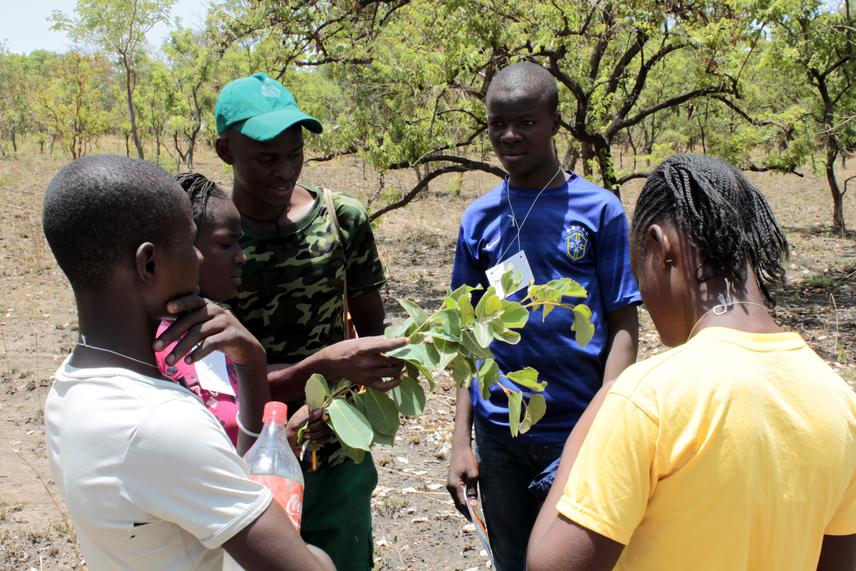Elise Bakker
By regular environmental education and a Children’s Bushcamp children will get a first-hand experience of nature and their interest for nature conservation will be kindled. In this way I hope to make a positive contribution to the restoration of the over-all health of the entire ecosystem.

Bushcamp.
The protected areas in the Bénoué Complex, Cameroon, is threatened by human encroachment and unsustainable use of resources. Communities are unaware of the importance of a divers and stable ecosystem for their own wellbeing and future. Education is an effective tool to change this.
First, local capacity for environmental education will be created by an extensive didactic course for three teams of local guards, given by local experts for Garoua Wildlife School. With the newly trained guards, environmental education for primary and secondary schools will be organised throughout the entire Bénoué complex. Around 30 schools will be visited three times during a period of one year. The education that will be given is interactive. Many images will be used and practical lessons will be a very important part. Because local guards and teachers will be used, I hope that the effectiveness of the education will be increased. Also, in close collaboration with Garoua Wildlife College, a Children’s Bushcamp where pupils from local schools are invited to experience their endemic natural surroundings first-hand in the National Park. Pupils will follow lessons about the ecosystem, herbivores/carnivores and plants. For all three themes, there will be theoretical classes, but also practical classes and even outdoor bush activities. Various games will be done, there will be a trip to the hippo pool and a BBC nature documentary about large carnivores will be shown. All of those activities will contribute to make the camp unforgettable.
Over all I hope to kindle the interest of pupils for nature conservation. Children are often willing to learn. When this new generation is changing attitudes towards nature, they may inspire their parents. When the co-existence between local communities and nature becomes more sustainable in the future, it may have long-lasting positive effects on the conservation of the regional ecosystem.